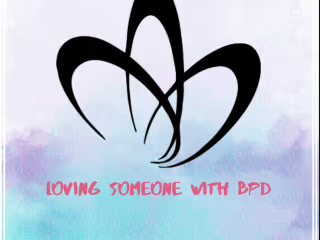Blog Post
Title: Thriving with Borderline Personality Disorder: Navigating Challenges and Finding Hope
Introduction:
Living with Borderline Personality Disorder (BPD) can feel like navigating a stormy sea, with emotions crashing like waves and uncertainty looming on the horizon. However, despite the challenges, it's possible not just to survive, but to thrive with BPD. In this article, we'll explore strategies for coping with BPD, finding support, and building a fulfilling life despite the disorder's complexities.
Understanding Borderline Personality Disorder:
Borderline Personality Disorder is characterized by intense emotional experiences, unstable relationships, and difficulties in regulating emotions and behaviors. Individuals with BPD may struggle with feelings of emptiness, fear of abandonment, and impulsivity. It's important to recognize that BPD is a valid and treatable mental health condition, and with the right support, individuals can learn to manage their symptoms and lead fulfilling lives.
Seeking Professional Help:
The first step in thriving with BPD is seeking professional help. Therapy, particularly Dialectical Behavior Therapy (DBT), has been shown to be highly effective in treating BPD. DBT focuses on teaching skills for emotional regulation, interpersonal effectiveness, distress tolerance, and mindfulness. Working with a therapist who specializes in BPD can provide invaluable support and guidance on your journey to recovery.
Building a Support System:
In addition to professional help, having a strong support system is essential for coping with BPD. Surround yourself with understanding and empathetic friends, family members, or support groups who can offer encouragement, validation, and a listening ear during difficult times. Connecting with others who have shared experiences can provide a sense of belonging and reduce feelings of isolation.
Practicing Self-Care:
Self-care is crucial for managing BPD symptoms and maintaining overall well-being. This may involve engaging in activities that bring you joy and relaxation, such as hobbies, exercise, meditation, or spending time in nature. Prioritize self-compassion and kindness toward yourself, recognizing that it's okay to have bad days and that progress is a journey, not a destination.
Managing Triggers and Crises:
Identifying and managing triggers is key to preventing crises and maintaining stability with BPD. Keep a journal to track your moods, triggers, and coping strategies, and develop a crisis plan for times when symptoms escalate. Utilize grounding techniques, such as deep breathing or mindfulness exercises, to center yourself during moments of distress. Remember that reaching out for help during a crisis is a sign of strength, not weakness.
Finding Purpose and Meaning:
Finally, finding purpose and meaning in life can provide a sense of direction and fulfillment despite the challenges of BPD. Explore your passions, interests, and talents, and consider how you can contribute to your community or pursue meaningful goals. Cultivate a sense of hope and optimism for the future, knowing that recovery is possible and that you are capable of creating a life worth living.
While living with Borderline Personality Disorder presents unique challenges, it's possible not just to survive, but to thrive with the right support, coping strategies, and mindset. By seeking professional help, building a support system, practicing self-care, managing triggers, and finding purpose and meaning, individuals with BPD can lead fulfilling and meaningful lives despite the disorder's complexities. Remember that recovery is a journey, and you are not alone on this path toward healing and growth.
Like this project
Posted May 4, 2024
I crafted a blog article titled "Thriving with Borderline Personality Disorder: Navigating Challenges and Finding Hope."
Likes
0
Views
2
Tags



